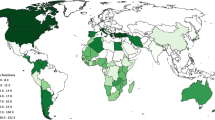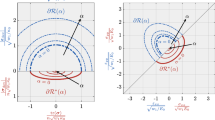Abstract
The statistical properties of aftershock sequences are associated with three empirical scaling relations: (1) Gutenberg-Richter frequency-magnitude scaling, (2) Båth’s law for the magnitude of the largest aftershock, and (3) the modified Omori’s law for the temporal decay of aftershocks. In this paper these three laws are combined to give a relation for the aftershock decay rate that depends on only a few parameters. This result is used to study the temporal properties of aftershock sequences of several large California earthquakes. A review of different mechanisms and models of aftershocks are also given. The scale invariance of the process of stress transfer caused by a main shock and the heterogeneous medium in which aftershocks occur are responsible for the occurrence of scaling laws. We suggest that the observed partitioning of energy could play a crucial role in explaining the physical origin of Båth’s law. We also study the stress relaxation process in a simple model of damage mechanics and find that the rate of energy release in this model is identical to the rate of aftershock occurrence described by the modified Omori’s law.
Similar content being viewed by others
Author information
Authors and Affiliations
Corresponding author
Rights and permissions
About this article
Cite this article
Shcherbakov, R., Turcotte, D. & Rundle, J. Aftershock Statistics. Pure appl. geophys. 162, 1051–1076 (2005). https://doi.org/10.1007/s00024-004-2661-8
Received:
Accepted:
Issue Date:
DOI: https://doi.org/10.1007/s00024-004-2661-8




